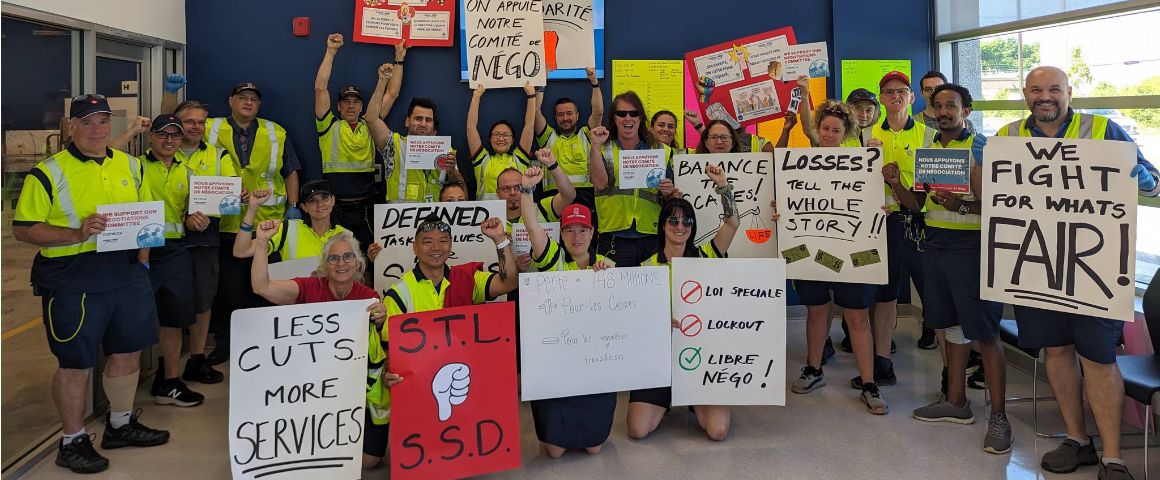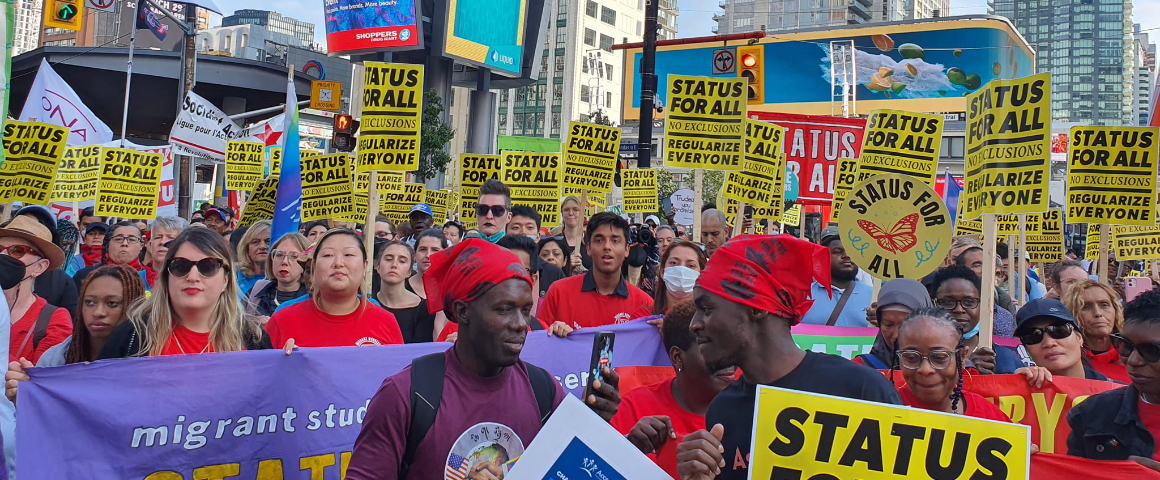Four decades of privatization and cuts to public funding of healthcare, social care, housing and education are “the leprous hands of neoliberal capitalism” that allow “private corporations to walk away with billions that should have been used to invest in people’s social needs.” These were the opening words from Baba Aye, the Health and Social Sector Officer with Public Services International at the recent “The Future is Public” forum, organized by the Communist Party’s Public Sector Workers’ Club (PSWC) in Toronto. The forum was moderated by Jenn Moxon, and included speakers Kevin Skerrett, a CUPE researcher and Ontario Health Coalition activist, and PSWC and education activist Domenic Bellissimo. The event was based on the “Future is Public” international conference, organized by the Transnational Institute in Amsterdam last December. The recently published conference report provides case studies of 1408 remunicipalized projects, in 2400 cities and 58 countries. It is available at www.tni.org.
Aye spoke on the global context, outlining the need to build and strengthen public services to combat the dangers of the current and future global pandemics and to mitigate the ravages of systemic racism. The legacy of privatization and cuts to public services is the main reason poor, black and racialized minorities is the around the world have disproportionately felt the negative impact of COVID-19. “Blacks are two- to three-times more likely to be infected with COVID-19” because they are “likely to work for lower wages and live with lower quality healthcare, attend schools that are underfunded and live in more crowded housing and communities.” All these conditions relate back to the privatization of public services – in healthcare, education, housing and social services.
Privatization, including outsourcing, contracting out and public-private partnerships, also undermines accountability. “Privatization turns any and everything about our social, and private life, to commodities – for profits.” What is worse, according to Aye, is that they put the siphoned-off profits into tax havens. “Thirty trillion in US dollars have been put into tax havens that could have been used to meet social needs.”
Privatization is also responsible for the increase in zoonotic diseases – as private corporations lead the drive to take over wilderness areas around the globe. Everything, says Aye, is in play as privatization seeks to commodify life itself.
Kevin Skerrett followed Aye’s presentation by outlining a campaign for the government to take over for-profit long-term care (LTC) provider, Revera. (The petition can be found at www.healthcoalition.ca) Not just your average corporation, Revera is entirely owned by the Pension Sector Pensions (PSP) Investment Board, the pension funds investment entity for federal public service workers, the RCMP and military. Skerrett calls this a ‘very peculiar relationship – a workers’ pension fund owning this predatory and exploitative for-profit provider of health care in Canada.”
Revera began operations in 2006 when the PSP bought a group of LTC facilities and then acquired additional LTC companies in the US and UK. The pension fund owns Revera on a private equity basis, so they have no obligation to report their finances. No one knows just how much profit Revera siphons out of its long-term care facilities by reducing quality of care, safety and lowering staff wages.
Skerrett quoted two statistics that highlight the need for labour unions, social justice coalitions and the broader public to get involved in this campaign. Between May and July, 81 percent of all COVID-19 deaths had taken place in LTC homes, making Canada the country with the highest LTC mortality rate among seventeen OECD countries. In addition, residents in for-profit LTC homes were four times more likely to die from COVID-19 than those in non-profit homes. Skerrett also cited recent research concluding that for profit homes “tend to deliver inferior care” – described as “lower levels in quality of staffing, more complaints from residents and families, higher rates of emergency department visits, more acute care hospital admissions and higher mortality rates.”
On a hopeful note, Skerrett ended his presentation by applauding the Public Service Alliance of Canada (PSAC) which condemned Revera in a statement on May 26 and called for its transfer into public hands. The campaign “opens up tremendous opportunities for public sector workers, and all of us who care about what’s happened to LTC during COVID-19.” A recent poll found that 86 percent of the Canadian public supports making all LTC facilities public. What we need now, according to Skerrett, is to support the Make Revera Public campaign through the mobilization of union members and the general public to put pressure on the federal government to make it happen.
Bellissimo spoke about what is needed to rebuild public services in Canada. The working class, he said, has paid the price in this pandemic with massive unemployment. They should not have to fund the recovery from the economic collapse. What is urgently needed is an Employment Insurance program that doesn’t disqualify 75 percent of the workers it was designed to help. The government needs to step up to fund public services, especially to rebuild the public sector in healthcare, education, childcare and housing. The pandemic has proven that there is the will to pay frontline workers what they are worth – with pandemic ‘bonuses’ and hourly wage increases that were agreed to by those same forces which fought for decades against raising the minimum wage.
The pandemic response has resulted in more people looking to the government for intervention. Recent polling reveals overwhelming public support for government spending on whatever is needed to rebuild the economy – and to meet people’s needs. CERB and wage subsidies should be expanded. People are now asking why LTC facilities are run by private corporations. Workers should have paid sick days, livable wages, pharmacare, income support and EI that everyone can access.
Bellissimo added that labour bodies must be pushed to take up the fight to expand public services. Citing the CLC task force on privatization, he noted that strengthening and expanding public services would have a positive impact on women, as they are the majority of workers in the public sector, and caregivers that fill the gaps in healthcare and social services that have been privatized. A Canada-wide, public childcare program would be a huge gain for women.
Unions also need to educate members on where their pension funds are invested. Many funds are invested in privatization projects or massive private infrastructure projects. Workers need more say in where our pension funds are invested.
A People’s Recovery is very much dependent on building stronger public services, including a guaranteed annual livable income, free universal childcare and at least one million units of public housing.
A strong labour movement is essential in this fight – stronger unions lead to democratization as they increase the participation of working people. According to Baba Aye, “workers and communities must unite and fight for better public services, greater funding, greater involvement and greater power in determining our public future.”
[hr gap=”10″]
Support socialist media!
If you found this article useful, please consider donating to People’s Voice.
We are 100% reader-supported, with no corporate or government funding.




